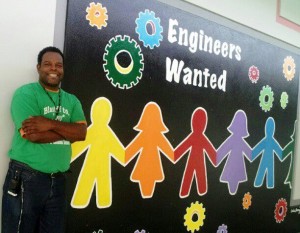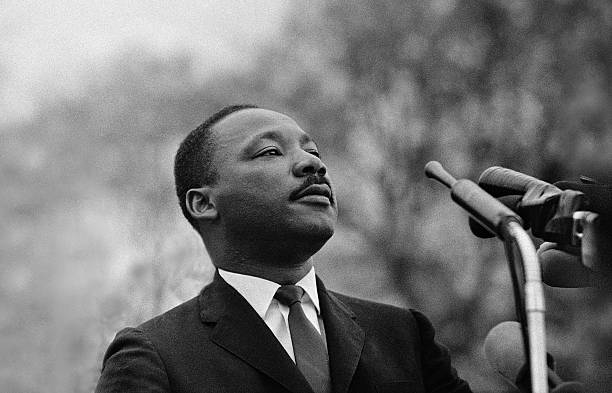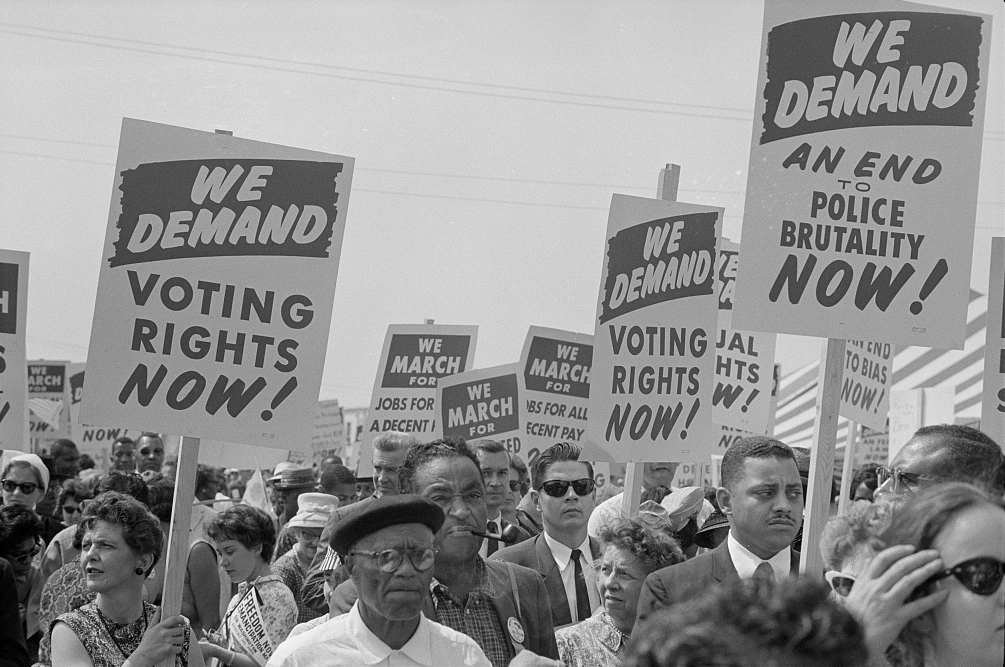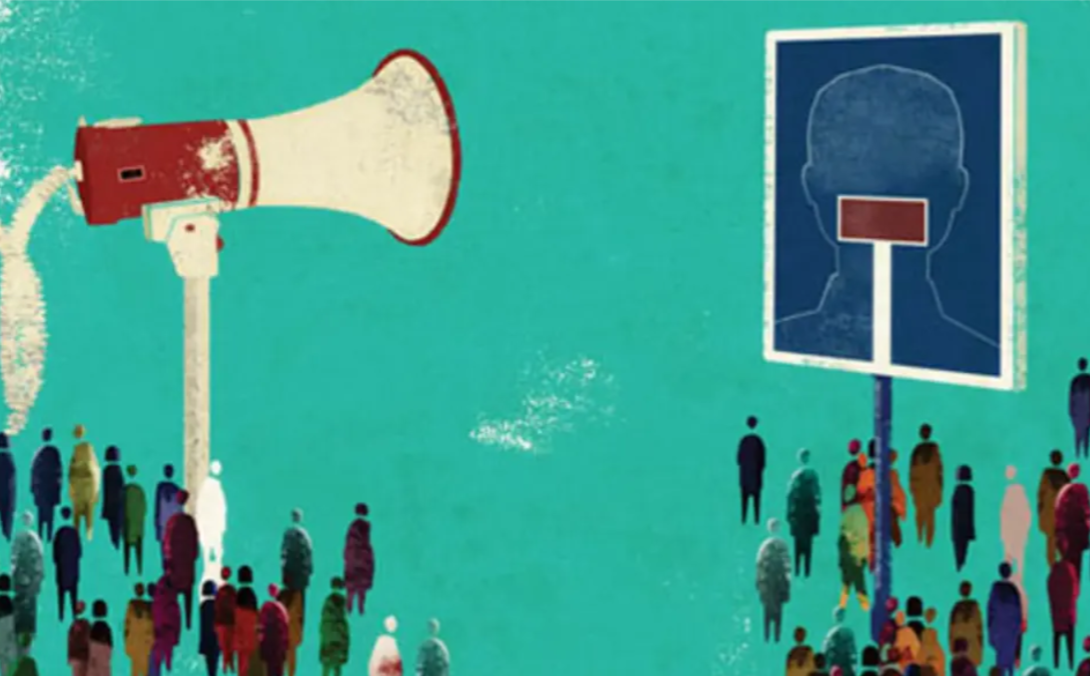(ThyBlackMan.com) HBCU’s have always been involved in STEM and STEAM, the paradigm of change is from the 19th century to 21st century integration and application.” William Jackson Adjunct Instructor Edward Waters College HBCU’s like Edward Waters College are empowering their students with new concentrations in educational disciplines that have traditionally been taught from a past grown from centuries of slavery, the focus is to apply these areas to 21st century applications in the context of STEAM / STEM / STREAM and CSTEAM.
HBCU’s have served to educate and empower thousands of free slaves so that they have the skills to function and excel in professions that capitalize in areas that slaves were already skilled in. Fields like agriculture, horticulture, animal care and others were physically demanding, but the cognitive applications were just as important.
The statement that education is the best economic development tool rings true from slavery even to today’s 21st century era of technology innovation and integration. HBCU’s primary responsibility was to educate freed slaves to read and write. The skills they had learned during slavery did not require a formal education so slaves had to learn and understand when and where to plant and harvest crops, slaves had to learn how to managelivestock either for application in working or for food. Slaves had to understand the patterns of weather in order to plant, manage and harvest at peak times to maximum time to make sure the harvest could make the most money for the plantation owner.
Taken from the web site: About Slavery – Ending Slavery natural and raw materials where planted and harvested by slaves; cotton, sugar, coffee, timber, and fish to name a few items. These commodities served to make southern and northern slave owners wealthy and active in global product chains. Just as today there was a global market for products, in the 21st century with technology other areas are more lucrative and profitable.
The brutality of slavery cannot be denied, but through this time Blacks learned skills that empowered them with knowledge to teach new generations. This empowerment of educational knowledge and skill helped in the application of learning which is still being applied by HBCU’s that were established by many Black and Quaker churches; understood that with the stopping of slavery, free slaves and their families needed to learn and apply skills to feed their families and compete for jobs with whites and other nationalities that were making the United States of
America their home..
HBCU’s were created with a purpose, that purpose started in 1837, 26 years before the end of slavery. Quaker philanthropist; Richard Humphreys, founded the Institute for Colored Youth with the goal to train free blacks to become teachers. The value of an educated person was even seen in the 1800s. Because many white institutions did not admit Blacks, HBCUs were the option for Blacks interested in attending college and earning a certificate or license of education. During the early years of their development the early Black colleges were a source of respect and pride (https://hbcuconnect.com/history.shtml).
So important were HBCU’s that the low levels of reading had to be addressed first. Public education for Blacks was not available in the South, these institutions had to provide preparatory courses at the elementary and high school levels for their students, this practice is still being used today in the 21st century, showing the importance of early education in PreK and that Black parents need to be involved and active in their children’s learning starting at birth. Blacks and even poor whites learned the basics of reading, writings and arithmetic first. They had to use these opportunities because during slavery if Blacks were caught learning how to read they were beaten and even killed.
HBCU’s were training students for literacy, but also for teaching and the professions that require these skills. The changes in technology at the times required early HBCU’s to adapt their teaching, noted educators like Booker T. Washington of the Tuskegee Institute (Tuskegee University) moved to where Blacks focused on the practical skills of manual labor to better suit them for the work that was available. Working with their hands, but applying skills learned from slavery was the most practical way to apply skills Blacks had become experts in.
There were over 100 HBCU’s across the country and they still provide a unique educational experience for not just Blacks, but other cultures. HBCUs are focused by the need for the unique educational environments that only an HBCU can provide. Just because Black students and students of color can attend traditional white institutions does not mean they should, not because of perceived levels of educational value, there is still the need for cultural connection in the educational systems in higher education across America. I’m a product of South Carolina State University and the value of my educational experience has prepared me for the changes in technology and in the field of education as it applies culturally.
Appling STEAM and STEM in world markets has made higher education and technical education a necessary. Even President Obama understood the importance of HBCU’s with the HBCU initiative he signed. $103 million for STEM programs at the National Science Foundation are available. HBCU’s must have qualified and experienced educators in these areas teaching students. The focus also must be diversify in its student body because global competition has increased and the available dollars in research and development programs that help fund many higher education institutions is diminishing or unreachable for HBCU’s that traditionally do not conduct research on levels of other institutions. If HBCU’s are to survive this must change soon. HBCU’s need increased commitment to conducting high-quality research on matters that have negative impacts on African Americans and on other peoples of color in Africa and throughout the African Diaspora and even in Asia. The academic gaps between Black students and white, Asian American and even continental African peers must change for Blacks students in the United States to be prepared academically and able to compete for careers not just jobs.
Black students must be encouraged to learn how to conduct research, apply the scientific and engineering practices that should be introduced in elementary, middle and high schools. As a STEAM – Engineering and Technology teacher a priority for inner city, at risk and challenged schools is to “show” these youth that they do have options for careers, they do have opportunities to be engaged in Science Technology Engineering Arts and Mathematics. These areas are not hard, but require a new way of thinking. There needs to be student enthusiasm in the laboratory environments of high schools and higher education because much of innovative laboratory work is student driven.
HBCU students in STEAM and STEM emulate research scientists during their years of learning, this is where dreams are developed and goals set for future careers.
Conclusion
Teaching Engineering this summer of 2014 with the Black Male Explorers Program and Social Media/ Technology with Learn2Earn College Experience, I’m still learning that too many Black students and students of color and their parents must dream of achieving beyond the stereotypes of typical careers of service, entertainment and sports. Taken from HBCUs to BCUs, August 3, 2010, Roy L. Beasley. “Black students (and members of other groups afflicted by prejudice) underperform whenever they perceive (rightly or wrongly) that other people expect them to do poorly just because they are black.” Black students must see themselves being successful in STEAM and STEM careers not threatened by them. The stereotype threat is strong in STEM and STEAM careers. Black students are too quick to deny these areas as “too hard,” “too nerdy,” and even “too white.”
Parents need to expose their children to the libraries, museums, learning centers and cultural centers of their communities to show their children that Blacks have and are important in innovative areas of STEAM / STEM / CSTREAM / STREAM..
Staff Writer; William D. Jackson
Find out more about this talented writer over at; OCS For Education.

















Leave a Reply